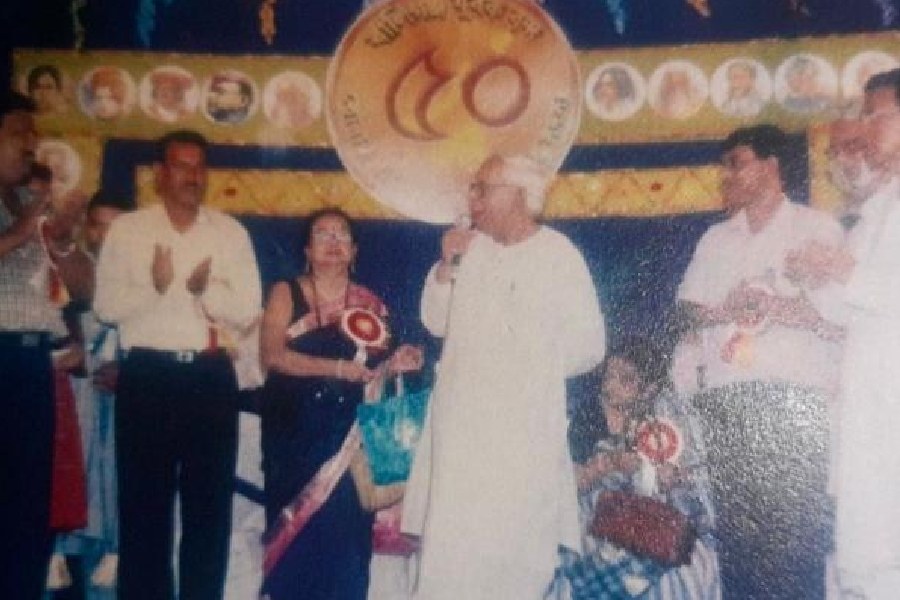- A chief minister who would smile at his neighbours with folded hands
- A chief minister whom many in the neighbourhood would call jethu
- A chief minister who would allow neighbours’ children to party on the terrace of his building on Christmas
- A chief minister who would ask his convoy to wait and allow students to pass first
This is how neighbours recalled former chief minister Buddhadeb Bhattacharjee. His presence on Palm Avenue gave it a facelift but never caused any impositions on the south Calcutta locality, they said.
Retired central government official Shampu Sengupta who lives close to Bhattacharjee’s residence recalled how once, many years ago, she was walking home from her office when the chief minister’s convoy happened to pass by. She looked into the back seat and spotted Bhattacharjee.
“The moment our eyes met, he smiled and did namaskar with folded hands. He was then the chief minister and could have simply passed by... I was so pleasantly surprised that the CM himself initiated a namaskar and smiled at someone he did not even know. I reciprocated,” said Sengupta.
Many on Palm Avenue recalled that only the closure of the roads for a few minutes in the day made them feel they shared the high-profile neighbourhood with the chief minister. “He never caused any inconvenience. Rather, the traffic was well managed in our locality because of his presence,” Sengupta said.
The Palm Avenue residence, which Bhattacharjee shifted into with his family in 1980 while he was the Information and Cultural Affairs minister in the state, has many neighbours who called him kaku and jethu.
“I called him jethu as my family knew him much before he became chief minister. When I joined the local club and would go to his house to invite him to programmes, he would never say no. He would only say ‘time ta ektu maintain korish’ (just maintain the schedule),” said Biswajit Roy of the neighbourhood. Roy was one of the few people Bhattacharjee referred to as tui, a connotation often used for people of younger age.
He would otherwise always refer to everyone as aapni as a mark of respect, irrespective of age.
Roy recalled how he and his friends would celebrate Christmas in the building where the CM lived. “He never scolded us,” Roy said.
Another resident, Sahadev Bhandari, associated with a local club, said Bhattacharjee was never late to the events. “I recall the 50th-year celebrations of our club when we invited him as the chief guest. He came and gave away prizes. He came like a common man,” he said.
Two Palm Avenue residents, who were students when Bhattacharjee was chief minister, recalled encounters with his convoy.
“My home is 100m from his apartment. He used to have a relatively small convoy — a white Ambassador, a black Ambassador and a police vehicle. Every time his convoy would pass, I felt an aura of simplicity and dignity around him,” said Mohammad Omar Shaikh, 30, who runs a perfume business.
Antara Dey, 27, a freelance creative make-up artist who had come to pay homage to Bhattacherjee, said she recalled an incident that left a deep impression on her.
“It must have been 2007 or 2008. A few friends and I were walking to tuition in the morning. The time coincided with the movement of the CM’s convoy. Some officers told us to stop and allow the convoy to pass. At this, the CM signalled to the police and said something. The cops then told us to keep walking. As the convoy crossed us, Bhattacharjee stopped his car and asked us which class we were in. Then he called an officer in front of us and told him that students should always be given preference over his convoy,” she said.
“Amar du-minute late holey khoti nei. Kintu chhatro der jeno amar jonno late na hoy (It is all right if I am two minutes late. But students should never be late because of me),” Dey quoted Bhattacharjee telling the cop.










